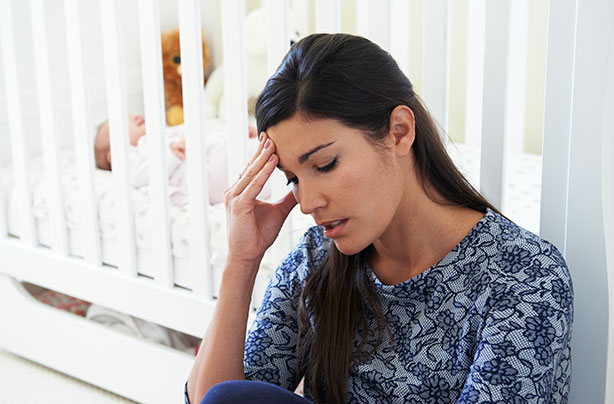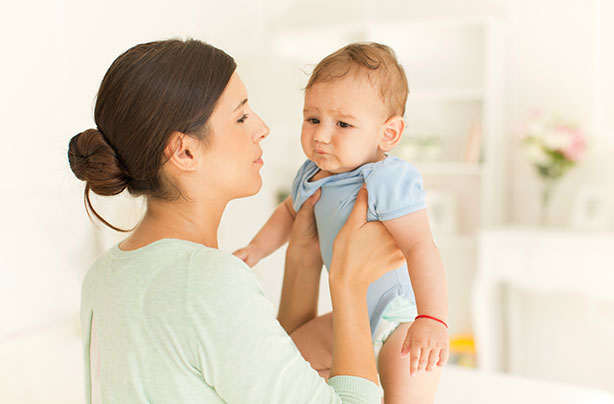Postnatal depression and breastfeeding
Should you keep breastfeeding with postnatal depression? Will it help with the symptoms or make them worse? Here are some things to consider before deciding

Parenting advice, hot topics, best buys and family finance tips delivered straight to your inbox.
You are now subscribed
Your newsletter sign-up was successful
There's no simple rule about whether or not breastfeeding is the right choice for someone with postnatal depression. It's a complicated relationship and every mother who is suffering with postnatal depression needs to evaluate her situation individually.
The benefits of breastfeeding your baby are very well documented, but if you're finding it particularly hard and you believe it's having a negative effect on your mental health, you need to decide if it would be in yours - and your baby's - best interest for you to give up.
Talk to your health visitor or GP about your decision. They will be able to offer you advice and support, but ultimately only you can know what's best for you and your baby.
This is all very well, but when you're facing some of the most challenging times of your life, as well as struggling with depression the 'best thing to do' is not always clear. If you're coping with postnatal depression and think giving up breastfeeding might help the situation, read our positive and negative aspects and see if it helps you decide.
Positive reasons to breastfeed with postnatal depression

- If you manage to breastfeed it may help your confidence as a mother, something that women who suffer with PND can struggle with
- Breastfeeding can make you feel calm and soothed
- Breastfeeding can help foster the bond between you and your baby - something sufferers of PND can find difficult
- Breastfeeding can help you realise how much your baby needs you - this could be a comfort to a mother with PND
Negative aspects of breastfeeding with postnatal depression

- If you are struggling with feeding, it can knock your confidence in your abilities as a mother
- If you are finding feeding particularly difficult, you may form negative associations with your baby and get you very stressed
- You may interpret your baby feeding as an overwhelming dependence on you which is compounding your postnatal depression symptoms
Anti-depressants and postnatal depression
Anybody on anti-depressants for postnatal depression should speak to their GP about suitable medication if they are breastfeeding.
Mums' advice GoodtoKnow mum Juliette O'DonnellO'Donnell believes breastfeeding while suffering with postnatal depression literally saved her life.
'I didn't feel like a proper mum and couldn't connect with Sean. He wouldn't be comforted by me, he didn't look like me, I felt no bond with him. But the one thing only I could do for him was breastfeed. This stopped me doing something to harm myself as I knew he needed me.'
Parenting advice, hot topics, best buys and family finance tips delivered straight to your inbox.